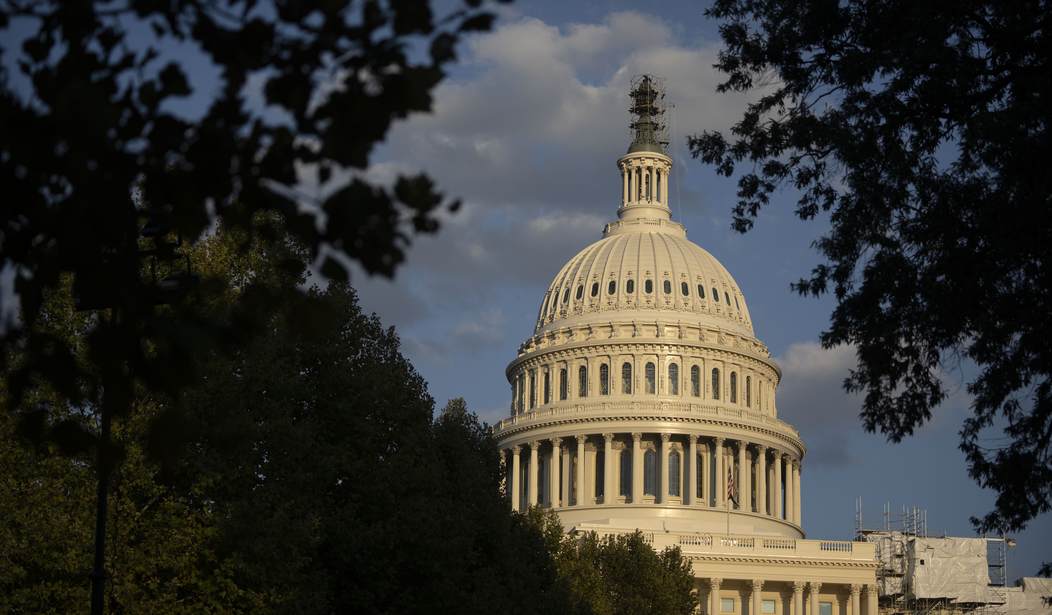Lawmakers in Washington D.C. should go ahead and cancel their summer plans. It's the summer of a presidential election year, which means that Congressional leadership is busy teeing up votes on bills that members of their party can use to campaign back home. Senate Majority Leader Chuck Schumer has certainly not been quiet about his intentions to use the Senate floor to bring up legislation that benefits members of the Democratic Party.
At the same time, Speaker of the House Mike Johnson has announced a summer agenda with votes on immigration and economic-focused legislation. However, some members of Republican leadership are unwisely using their platforms to force votes on a package of misguided bills that could throw those plans into jeopardy.
Congresswoman Cathy McMorris Rodgers is reportedly aggressively pushing to force members of the House Energy and Commerce Committee – which she chairs – to vote on a number of privacy-focused bills, including the American Privacy Rights Act (APRA). For McMorris Rodgers, who is retiring after her term this year, privacy has been a long-term priority, and she views APRA as the capstone to her long career.
In theory, passing legislation to strengthen privacy protections for Americans should be a no-brainer. However, as McMorris Rodgers has used her sway as the chair of a powerful House committee to coerce her committee members into supporting APRA and other privacy legislation, it has become clear that the bills she’s attempting to jam through Congress would do little to protect Americans’ privacy. Instead, they’re filled with harmful provisions and controversial language that should give members of the House Energy and Commerce Committee pause.
For one, APRA includes language that would stifle American innovation, ultimately ceding the United States’ competitive edge on the global stage to China and threatening our national security. APRA would do that by providing sweeping new powers to progressives at the Federal Trade Commission (FTC) that would allow them to determine how American small businesses, startups, and other companies can innovate. Already, the Biden administration has wielded its regulatory powers to undercut American national security interests. Republicans in Congress shouldn’t be responsible for handing them another tool to do that.
Recommended
The bill has also been met with criticism from over a dozen groups representing small businesses across the country for including what’s known as a “private right of action.” This private right of action would allow lawyers to target small businesses with frivolous lawsuits in the hope of getting a quick settlement from business owners who can’t afford to fight complex, lengthy lawsuits. Ultimately, the bill risks overwhelming small businesses with legal costs.
Unfortunately, APRA isn’t the only politically toxic bill Congresswoman McMorris Rodgers is attempting to push through the committee she leads.
In addition to APRA, McMorris Rodgers plans to make the House Energy and Commerce Committee vote on the Kids Online Safety Act (KOSA). While the bill is supposed to protect children from inappropriate content online, as written, KOSA would empower political appointees at the FTC to determine what constitutes as “harmful,” authority that free speech advocates and religious rights groups have pointed out could be used to censor legitimate speech.
Clearly, APRA and KOSA aren’t the kind of bills members of Congress want to vote on before heading out on the campaign trail. And while it’s understandable that McMorris Rodgers wants to pass legislation to address a long-time priority of hers, the fact is that forcing a vote on these bills means that members of Congress in hotly contested campaigns will have to answer to concerned constituents about their vote for ineffective, harmful legislation ahead of Election Day this year.
Bills like APRA and KOSA threaten to be a political liability for Republicans running for Congress. Ultimately, Republican leaders like Cathy McMorris Rodgers should not make members of their own party take votes on politically toxic pieces of legislation as they go to ask their constituents to send them back to Congress.
Matt Mackowiak is the president of Potomac Strategy Group, served in the Bush administration at the U.S. Department of Homeland Security, on the Bush-Cheney re-election campaign, and was a senior communications aide to two U.S. Senators and a Governor.

























Join the conversation as a VIP Member